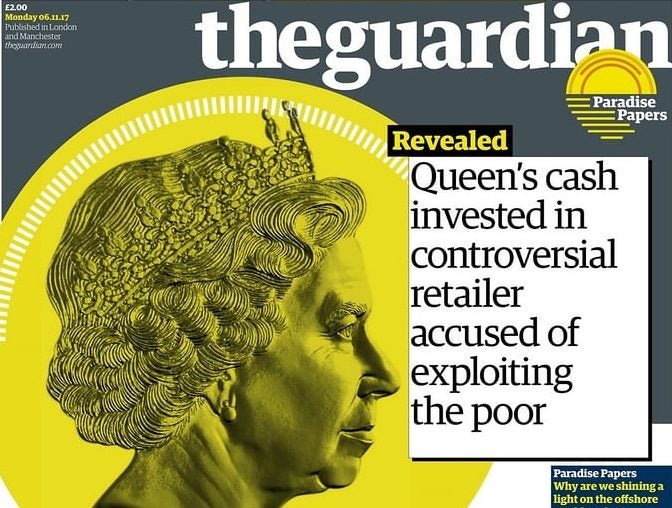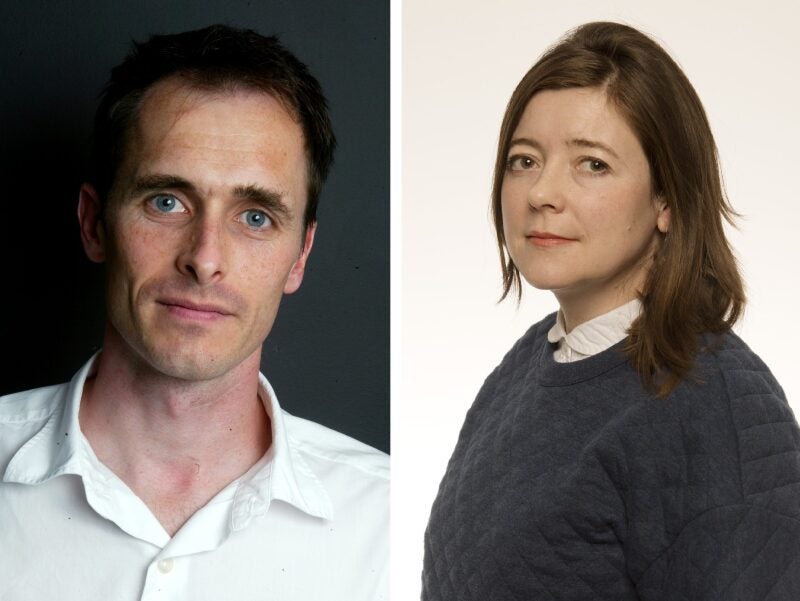
Covering the Paradise Papers was “the most complicated project the Guardian has ever been involved in” – even more so than last year’s Panama Papers, according to the newspaper’s head of investigations Nick Hopkins.
Although the leak was nearly half the size of the Panama Papers in data terms, Hopkins said the project was the first time the Guardian had worked on a collaboration that had independent stories impacting three different “jurisdictions” – with material relating to the UK, the US and Australia.
The Guardian had a team of up to 20 people – including financial correspondent Juliette Garside and Money editor Hilary Osborne – working over 11 months on the leaked documents, with Hopkins editing across three time zones to bring it together for publication.
“I don’t recommend it if you have high blood pressure or a weak heart,” he told Press Gazette. “I would say it’s definitely the most complicated project that the Guardian has ever been involved in and we have been involved in some pretty complicated projects.”
The Paradise Papers relate to 13.4m leaked financial documents spanning from 1950 to 2016, about half of which concerned offshore legal service provider Appleby and corporate services provider Estera (which split from Appleby last year). Roughly half again relate to so-called corporate registries predominantly based in the Caribbean.
The Guardian was one of about 100 media partners involved in reporting the data leak, along with BBC Panorama in the UK. Both were able to access the documents as a result of their membership of the International Consortium of Investigative Journalists (ICIJ).
As with the Panama Papers, the Paradise Papers documents were first sent to German broadsheet the Suddeutsche Zeitung which then passed it on to the ICIJ. The paper has not revealed the source of the leak.
Core members of the consortium first met in at the Guardian’s headquarters in December last year to scope out public interest angles and discuss the main actors. A second meeting in Munich, where Suddeutsche Zeitung is based, saw the news outlets share their findings and coordinate on deadlines.
Hopkins said: “It’s quite an odd thing for British journalists to be involved in this kind of collaborative journalism, because we are such a cut-throat industry here, but when you go into a collaboration, especially a large one like this one was, you have to suspend all your competitive instincts and you have to buy into this idea that whatever we find we are going to share and you have to trust that every other partner in the project is going to have exactly the same attitude.
“And if you don’t go into a project like this with that kind of attitude, it falls apart. So you have to have a completely different mindset from the one that you would normally adopt in your day-to-day working.”
He said of dividing content with BBC’s Panorama that “there was no formal split” between the two news organisations.
“We both began looking at the data with our own ideas, but because you share everything with your partners in a collaboration like this, there was never any question that we wouldn’t tell the BBC what we were looking at, and vice-versa.
“There is no competition in a collaboration, so we shared our findings on the stories we were both keen on. But in the end you are responsible for your own content. And different media partners had different priorities. That was reflected in the stories we did, and the way we projected them.”
Hopkins said the Guardian concentrated on what was “probably a very tiny subset of the material which related mostly to UK companies” and took those featured in the Panama Papers – which he and Garside both worked on – as a starting point.
He said: “There were lessons that we had learned going through the Panama Papers that informed how we did the Paradise Papers, but the fundamental question that you’re stuck with right from the start is ‘ok, why are we looking at this? What’s the public interest in looking at this?’
“And that’s what we spent the first few weeks and months of the project looking at, which is establishing the public interest.”
Garside told Press Gazette that the data – which was hosted online in another country, allowing the Guardian to circumvent UK data laws – had a search box function much like an online search engine.
She said part of the process involved searching the names of politicians and the super rich to see what they could find, but said: “It’s not foolproof and it misses a lot of stuff.
“Initially we were tackling it that way, we were getting some matches and looking into the names that matched a bit more deeply, otherwise we were just putting in names of cabinet members, politicians, that kind of thing. Literally like you’re interrogating a Google box – there is a search box, you type in your search terms and you get results, it looks very much like the Google interface.”

Nick Hopkins and Juliette Garside. Pictures: Guardian
Added Nick: “It is a mixture of informed – what we’ve done before, these are the people who have appeared in either news stories or things like the Panama Papers before, can we build on the work we’ve done on the politicians and the companies that have appeared before.
“Part of it is informed guesswork and part of it is ‘Ok, well who has spoken out in the defence of tax havens and why might they be doing that?’ Is there something they have in the data that suggests they have an interest that they want to hide – those are the basic principles upon which we want to work.”
But, he told Press Gazette: “I would be extremely nervous and uncomfortable about you characterising this as some kind of fishing expedition, because that is exactly what it isn’t.
“A very clear protocol for the journalists who are involved in projects like this is that we start with the public interest, we try and establish what the public interest is… by looking at politicians, by looking at people who may have interests here.
“Very often, just by concentrating and drilling down in those areas, it will lead you to other people, other companies and you develop stories like that.”
The Panama Papers has resulted in a vast number of stories in the UK press alone, including about the offshore financial activities of the Queen and Prince Charles, Formula One driver Lewis Hamilton and BBC actors.
Hopkins said that for any media organisation to try to cover such a vast amount of documents on their own “would be a lifetime’s work”.
“It would be almost impossible to do it and I do think that with big data leaks like this there is a real value in collaboration and bringing in the skillsets that other media organisations can bring from around the world and they bring a perspective and an understanding that we don’t have beyond the areas in which we have a presence.”
Email pged@pressgazette.co.uk to point out mistakes, provide story tips or send in a letter for publication on our "Letters Page" blog
